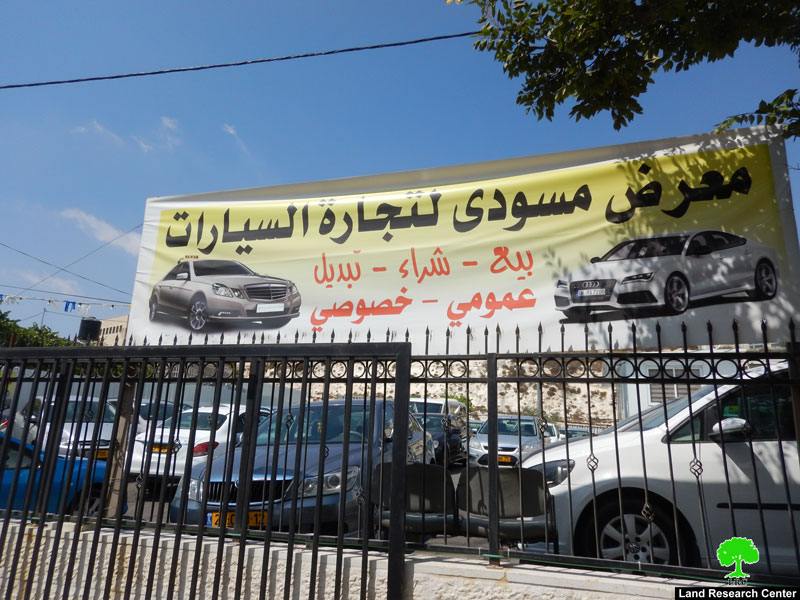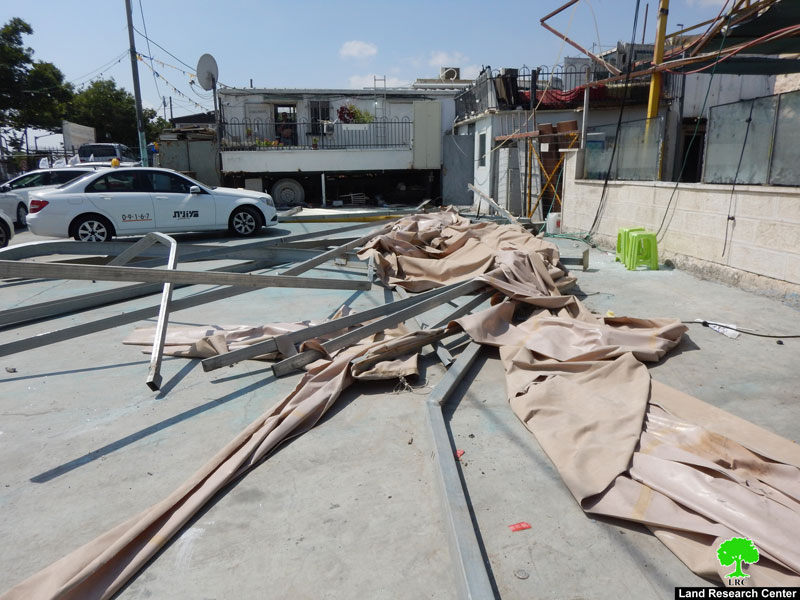2017-08-15
Israeli Occupation Forces demolish commercial establishments in Silwan village
The dozers of Israel's occupation municipality demolished on August 15, 2017 a commercial establishment (car dealership) in the neighborhood of Beit Hanina north of Jerusalem.
It is reported that a force from Israel Police and a dozers headed to the targeted location, closed all roads and brought down the 20m2 establishment on the claim of it being "unlicensed". Noteworthy, the structure is owned by Suleiman Muthafar.
He explained that the municipality imposed a 470,000 NIS violation fine on him before they force left the place.


Demolition of tire-repair shop:
In same context, dozers of the occupation's municipality demolished a commercial establishment (a tire-repair shop) in Silwan neighborhood, south Al-Aqsa mosque on the claim of "unlicensed construction".
The business is reported owned by Na'im Dweih and is of 50m2. The affected citizen said that the structure was built a year ago and that the municipality did not deliver him any demolition order for it. The demolition was surprising and without any previous warning, said Na'im.
About Silwan town:
It is one of Jerusalem's important neighborhoods and the closest to Al-Aqsa mosque. The town still accommodates heritage sites and monuments despite the vicious attack the occupation carries out to deface the history of the area. Noteworthy, the occupation carried out numerous excavations under beneath houses in the area and took over several homes to house more colonists in the town.

Land Research Center LRC sees that demolitions contradict with all of the International conventions and Humanitarian laws including:
- Article 17 of the (1948) Universal Declaration of Human Rights stating: “Everyone has the right to own property alone as well as in association with others. No one shall be arbitrarily deprived of his property.”
- Section ‹G› of article 23 of the (1907) The Hague Conventions asserting: “In addition to the prohibitions provided by special Conventions, it is especially forbidden to destroy or seize the enemy's property, unless such destruction or seizure be imperatively demanded by the necessities of war.”
- Article 53 of the Geneva Fourth Convention (1948) declaring: “Any destruction by the Occupying Power of real or personal property belonging individually or collectively to private persons, or to the State, or to other public authorities, or to social or cooperative organizations, is prohibited, except where such destruction is rendered absolutely necessary by military operations.”
- Section 1, Article 11 of the International Covenant on Economic, Social and Cultural Rights (1966): “The States Parties to the present Covenant recognize the right of everyone to an adequate standard of living for himself and his family, including adequate food, clothing and housing, and to the continuous improvement of living conditions. The States Parties will take appropriate steps to ensure the realization of this right, recognizing to this effect the essential importance of international co-operation based on free consent."
